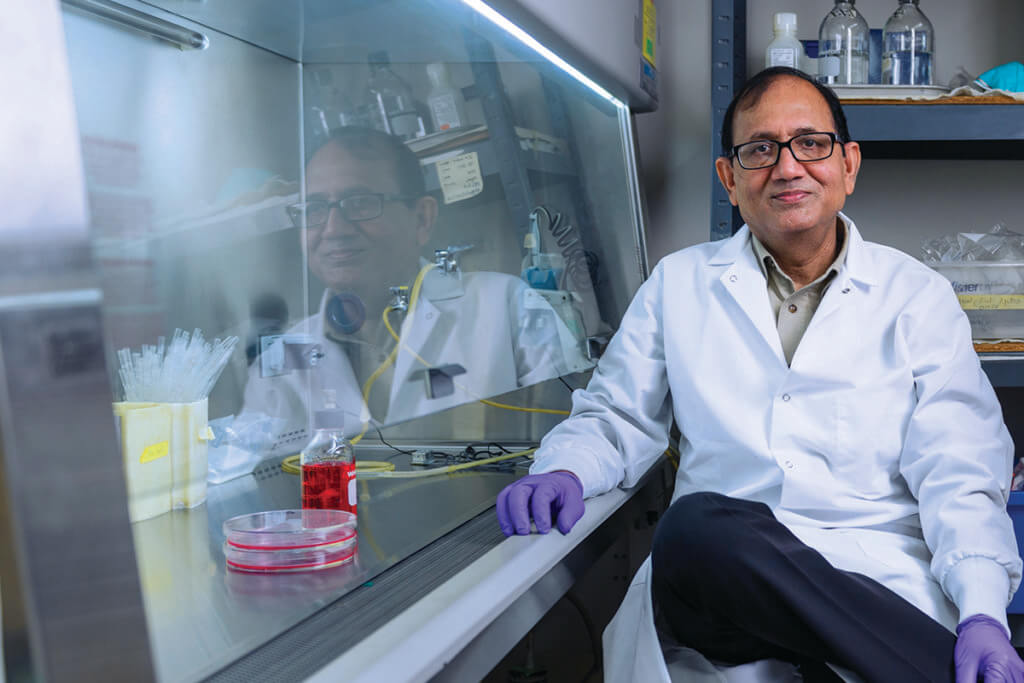
Innovators at Purdue University, led by Dr. Suresh Mittal, Distinguished Professor of Virology in the College of Veterinary Medicine, and the Houston Methodist Research Institute have created a novel strategy for developing an effective vaccine for a widespread form of tuberculosis.
Mycobacterium tuberculosis (Mtb) is a leading cause of death worldwide, leading to over 1.5 million fatalities annually. Approximately one-third of the global population is infected with the latent form of Mtb. Bacillus Calmette-Guérin (BCG) is widely used as a vaccine against tuberculosis, but has a variable protection against neonatal and adult pulmonary TB. That protection can, however, range from zero to 80% among infants. Children are routinely vaccinated, yet Mtb dissemination into brain and tuberculosis meningitis continues to occur.

The Purdue and Houston Methodist researchers have created this novel TB vaccine formulation by incorporating autophagy-mediated antigen presentation, which initiates an enhanced T cell response. Dr. Chinnaswamy Jagannath, professor of pathology and genomic medicine at the Houston Methodist Research Institute, which is an affiliate of Weill Cornell Medical College, showed that the novel formulation improves the development of tuberculosis-specific immune responses.
Dr. Jagannath collaborates with Dr. Mittal, a faculty member in the Department of Comparative Pathobiology. “Our vaccine approach is equally effective without or with prior vaccination with BCG,” Dr. Mittal said. “It is vital since the majority of people in Mtb-endemic countries are already immunized with BCG,” said Dr. Jagannath.
Dr. Mittal’s lab studies delivery platforms for vaccines, and Dr. Jagannath’s lab used the nasal delivery route for this TB vaccine development. “The great thing about this work with TB is that it can translate to other infectious diseases and possibly cancer immunotherapy,” Dr. Mittal said.
The innovators have worked with the Purdue Research Foundation Office of Technology Commercialization (OTC) to patent their technology. The innovators and OTC are looking for partners to continue developing it. The next step for the vaccine formulation is to conduct a vaccine efficacy study in a nonhuman primate model. Dr. Mittal explained that the successful completion of the study will form the basis for a human trial, though no human trial is currently planned.
A manuscript describing this work is published in the August 2021 issue of the peer-reviewed Cell Reports Medicine. This research was conducted with research awards from the National Institute of Allergy and Infectious Diseases and Internal Funds.
Click here to view a complete Purdue news release on the research.
